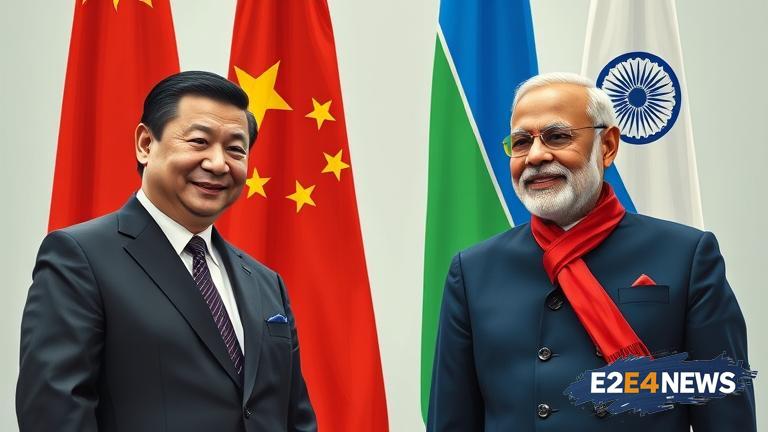In a significant display of diplomatic unity, Chinese President Xi Jinping is expected to host Russian President Vladimir Putin and Indian Prime Minister Narendra Modi in a grand ceremony, marking a new era of cooperation and solidarity among the three nations. The meeting is seen as a strategic move to counterbalance the growing influence of Western powers, particularly the United States. China, Russia, and India have been increasingly cooperating on various fronts, including trade, security, and energy. The three nations have also been working together to promote regional stability and counter terrorism. The meeting is expected to focus on a range of issues, including the ongoing conflict in Ukraine, the situation in Afghanistan, and the growing tensions in the South China Sea. The three leaders are also expected to discuss ways to promote economic cooperation, including the development of the Belt and Road Initiative (BRI) and the Eurasian Economic Union (EEU). China’s Xi Jinping has been a key proponent of the BRI, a massive infrastructure development project aimed at connecting China with other parts of Asia, Europe, and Africa. Russia’s Putin has also been a strong supporter of the project, seeing it as an opportunity to boost Russia’s economy and increase its influence in the region. India’s Modi, on the other hand, has been cautious in his approach to the BRI, citing concerns over sovereignty and territorial integrity. Despite these differences, the three leaders are expected to reaffirm their commitment to cooperation and solidarity, and to work together to address common challenges and threats. The meeting is also seen as an opportunity for the three nations to promote their shared values and interests, including the principles of sovereignty, non-interference, and mutual respect. The grand ceremony is expected to feature a range of cultural and diplomatic events, including a state dinner, a joint press conference, and a series of bilateral meetings. The meeting is likely to be closely watched by the international community, particularly the United States, which has been seeking to counter the growing influence of China, Russia, and India. The three nations have been increasingly asserting their presence on the global stage, and their cooperation is seen as a significant challenge to Western dominance. As the meeting gets underway, analysts and experts will be closely watching the developments, seeking to understand the implications of this grand display of solidarity for global politics and international relations. The meeting is expected to have significant implications for regional stability, global governance, and the future of international relations. It is also likely to have a major impact on the global economy, particularly in terms of trade, investment, and energy cooperation. The three nations have been increasingly cooperating on energy issues, including the development of oil and gas pipelines, and the promotion of renewable energy sources. They have also been working together to promote trade and investment, including the development of free trade agreements and the promotion of economic corridors. As the meeting concludes, the three leaders are expected to issue a joint statement, outlining their shared vision and commitment to cooperation and solidarity. The statement is likely to emphasize the importance of mutual respect, trust, and cooperation, and to reaffirm the principles of sovereignty, non-interference, and mutual benefit. The meeting is a significant development in international relations, marking a new era of cooperation and solidarity among China, Russia, and India. It is likely to have far-reaching implications for global politics, economy, and security, and to shape the future of international relations for years to come.
